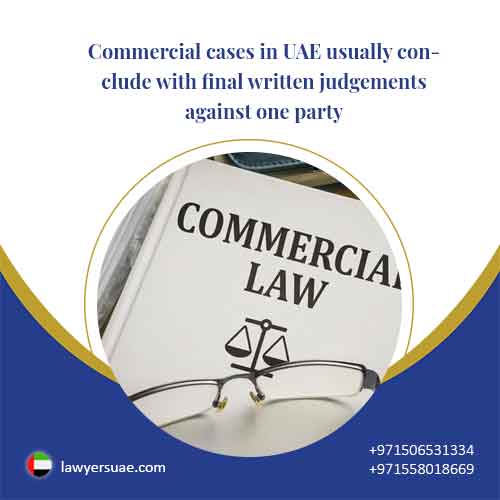The United Arab Emirates (UAE) has become a major global business hub and commercial center in recent decades. However, with booming international trade and investment comes the potential for commercial disputes arising out of complex business transactions. When disagreements occur between entities doing business in the UAE, effective dispute resolution is crucial to preserve important commercial relationships.
Dubai: a beacon of progress that sparkles amid the sands of the Middle East. Recognized worldwide for its dynamic growth strategy and enticing business environment, this Emirate shines as a cornerstone of commerce and innovation. Among the seven jeweled Emirates of the United Arab Emirates, Dubai’s diversified economy flourishes, driven by sectors such as trade, tourism, real estate, logistics, and financial services.
This page provides an overview of commercial dispute resolution in the UAE, including key laws and institutions domestic and foreign companies should understand when operating in the country. It also covers alternative dispute resolution (ADR) methods that often prove cheaper and faster than formal litigation.
Commercial Disputes in the UAE
A commercial dispute arises when two or more business entities disagree over an aspect of a business transaction and seek legal resolution. According to UAE law, common types of commercial disputes include:
At its core, it represents any type of disagreement within a business setting. It’s the legal mechanism through which companies manage their conflicts with other businesses, government bodies, or groups of individuals. Let’s delve into some of these disputes:
- Breach of Contract: Quite common in nature, this dispute arises when one party fails to uphold its contractual obligations, such as payment delays, non-delivery of goods or services, or other unfulfilled terms.
- Partnership Disputes: Often erupting between business co-owners, these disputes typically involve discord over profit sharing, business direction, responsibilities, or differing interpretations of partnership agreements.
- Shareholder Disputes: Prevalent in corporations, especially those closely held or family-operated, where shareholders may clash over the company’s direction or management.
- Intellectual Property Disputes: These disputes arise over the ownership, usage, or infringement of patents, trademarks, copyrights, or trade secrets.
- Employment Disputes: Stemming from disagreements over employment contracts, discrimination claims, wrongful termination, wage disputes, and more.
- Real Estate Disputes: Pertaining to commercial property, these disputes might involve lease agreements, property sales, landlord-tenant disputes, zoning issues, and others. These issues can often lead to legal disputes between parties that may require litigation. What is real estate litigation specifically? It refers to the process of resolving real estate disputes through court battles.
- Regulatory Compliance Disputes: These disputes occur when businesses and government agencies disagree over compliance with statutory and regulatory requirements.
Commercial disputes can involve complex legal and financial issues worth millions of dollars. Local companies, multinational corporations, investors, shareholders, and industrial partners may all become involved in commercial conflicts in the UAE, including real estate breach of contract cases within property development deals or joint ventures. Even technology companies with no physical presence in the country could face lawsuits over internet-based dealings.
These disputes can be resolved through various mechanisms like negotiation, mediation, arbitration, or litigation. In all scenarios, it’s prudent to consult with a legal professional to comprehend your options and safeguard your interests.
Deciding to Litigate: Factors to Consider
Before plunging into the complexities of commercial litigation, certain key factors merit consideration:
- Strength of Your Case: Does your claim hold water legally? Do you possess compelling evidence like due diligence reports in support of your claim? Consultation with a lawyer is essential to assess the potency of your case.
- Cost Implications: Litigation is not a cheap affair. Fees for attorneys, court charges, expert witnesses, and other associated costs can escalate rapidly. You should weigh the prospective benefits of the lawsuit against the potential costs.
- Time Factor: Often a drawn-out process, litigation can take years to conclude, especially when it involves complicated commercial disputes. Can you afford the time it will take?
- Business Relationships: Lawsuits can strain or completely sever business relationships. If the litigation involves a business partner or a company you wish to continue dealings with, consider the potential fallout.
- Publicity: Legal disputes can attract undesired publicity. If the dispute is sensitive or potentially damaging to your company’s reputation, a more private dispute resolution method like arbitration might be more suitable.
- Enforceability of Judgment: Winning a judgment is one aspect; enforcing it is another. The defendant’s assets should be substantial enough to satisfy a judgment.
- Alternative Dispute Resolution (ADR): Mediation or arbitration can be less expensive and quicker than a court battle, and they may better preserve business relationships. ADR is also typically more private than litigation, but it might not always be suitable or available.
- Risk of Counterclaim: There is always the possibility that a lawsuit could spur a counterclaim. Evaluate any potential vulnerabilities in your position.
A decision to undertake commercial litigation represents a significant choice and should be made with thorough consideration and sound legal advice.
Methods for Resolving Commercial Disputes in UAE
When commercial disputes emerge in UAE, the involved parties have several options to consider for resolution:
Negotiation
Parties in conflict often first try directly engaging with each other through dialogue, negotiation, and non-binding consultation. When done properly, this method is inexpensive and preserves business relationships. However, it requires compromise, takes time, and can still fail.
Mediation
When it comes to resolving business disputes, one effective method that parties often consider is commercial mediation. But what exactly is commercial mediation? Mediation involves hiring a neutral, accredited third-party to facilitate negotiation and foster compromise solutions between disputants. Mediation centres in UAE like DIAC provide professionals specifically trained in business mediation. If negotiation fails to bring agreement, mediation is typically the next method parties consider for resolving disputes.
Arbitration
With arbitration, disputants refer their conflict to one or more arbitrators who make binding decisions. Arbitration is faster and less public than court litigation, and arbitrator decisions are often final. The DIAC, ADCCAC, and DIFC-LCIA centres all facilitate arbitration services in UAE for major business disputes.
Litigation
Parties can always refer disputes to local courts like Dubai Courts or ADGM for formal civil litigation and judgment. However, litigation is usually slower, costlier, and more public than private arbitration or mediation. The UAE generally recognizes foreign civil and commercial judgments, but enforcement can still prove challenging. Companies should understand court procedures and governing laws before pursuing litigation.
Key Takeaway: A spectrum of dispute resolution methods exist in UAE ranging from informal negotiations to formal public court litigation. Parties should carefully weigh the cost-efficiency, privacy, and binding nature of procedures when commercial conflicts emerge.
Key Laws & Institutions Governing Commercial Disputes
The UAE has a civil law system heavily influenced by Islamic law and principles. Key laws and institutions governing commercial disputes in the country include:
- UAE Federal Law No. 11 of 1992 – Establishes most of the core principles of civil procedure in UAE courts
- DIFC Courts – Independent court system in Dubai International Financial Centre (DIFC) with jurisdiction over disputes within DIFC
- ADGM Courts – Courts with jurisdiction in Abu Dhabi Global Market free zone that hear some commercial disputes
- Arbitration Law of 2018 – Key statute governing arbitration of disputes in UAE and enforcement of arbitral awards
Some of the main institutions involved in regulating, overseeing, and resolving commercial disputes in the UAE are:
- Dubai International Arbitration Centre (DIAC) – One of the main arbitration centres in Dubai
- Abu Dhabi Commercial Conciliation & Arbitration Centre (ADCCAC) – Main arbitration centre located in Abu Dhabi
- DIFC-LCIA Arbitration Centre – Independent international arbitration institution located within DIFC
- Dubai Courts – Local court system in Dubai emirate with a specialist commercial court
- Abu Dhabi Judicial Department – Governs the court system in Abu Dhabi emirate
Understanding this legal landscape is key for foreign investors and companies doing business in UAE special economic zones and free zones. Key details like contract terms, governing law, and dispute jurisdiction can impact how conflicts get resolved.
Overview of Commercial Litigation Process in UAE Courts
If private methods like mediation or arbitration fail and parties initiate court litigation for a commercial dispute, the judicial process will typically involve:
Statement of Claim
The plaintiff initiates court proceedings by submitting a statement of claim specifying alleged facts, legal basis for the complaint, evidence, and demands or remedies sought against the defendant. Supporting documents must be filed with appropriate court fees.
Defence Statement
Upon receiving official notice, the defendant has a defined period to submit a statement of defence responding to the claim. This includes refuting allegations, presenting evidence, and making legal justifications.
Evidence Submission
Both parties submit relevant evidential documents to support claims and counterclaims made in initial statements. This may include official records, correspondence, financial documents, photographs, witness statements, and expert reports.
Court Appointed Experts
For complex commercial cases involving technical issues, courts may appoint independent experts to analyze evidence and provide opinions. These reports carry significant weight in final rulings.
Hearings & Pleadings
Court-sanctioned hearings provide opportunity for oral arguments, witness examinations, and questioning between the disputants and judges. Legal representatives plead positions and try convincing judges.
Judgments & Appeals
Commercial cases in UAE usually conclude with final written judgements against one party. Losing parties can submit appeals to higher courts but must provide legal justification and grounds. Appeals ultimately reach Supreme Federal Court.
While this litigation framework exists, companies should carefully weigh time commitments and legal costs against privacy and flexibility offered by alternatives like arbitration. And before any disputes arise, investors should ensure governing laws and jurisdiction are clearly defined in all business agreements and contracts.
Conclusion & Preventing Commercial Disputes in UAE
Complex deals between corporations, investors, and industrial partners raise risks of significant commercial disputes in booming economies like UAE. When disagreements do erupt, effective dispute resolution helps preserve business relationships worth millions.
Companies eager to avoid the costs and hassles of full-blown legal disputes should take proactive measures:
- Define clear contract terms & jurisdiction – Ambiguous contracts raise risks of misunderstandings.
- Conduct due diligence – Fully vet the reputations, capabilities and records of potential business partners.
- Get everything in writing – Oral discussion alone allows critical details through cracks.
- Resolve issues early – Nip disagreements before positions harden and conflicts escalate.
- Consider ADR framework – Mediation and arbitration often best support ongoing deals.
No commercial relationship proves entirely immune to conflict. However, understanding legal landscapes and proactively managing deal-making processes helps businesses mitigate risks when operating in global hubs like the UAE.
Call us now for an urgent appointment at +971506531334 +971558018669





